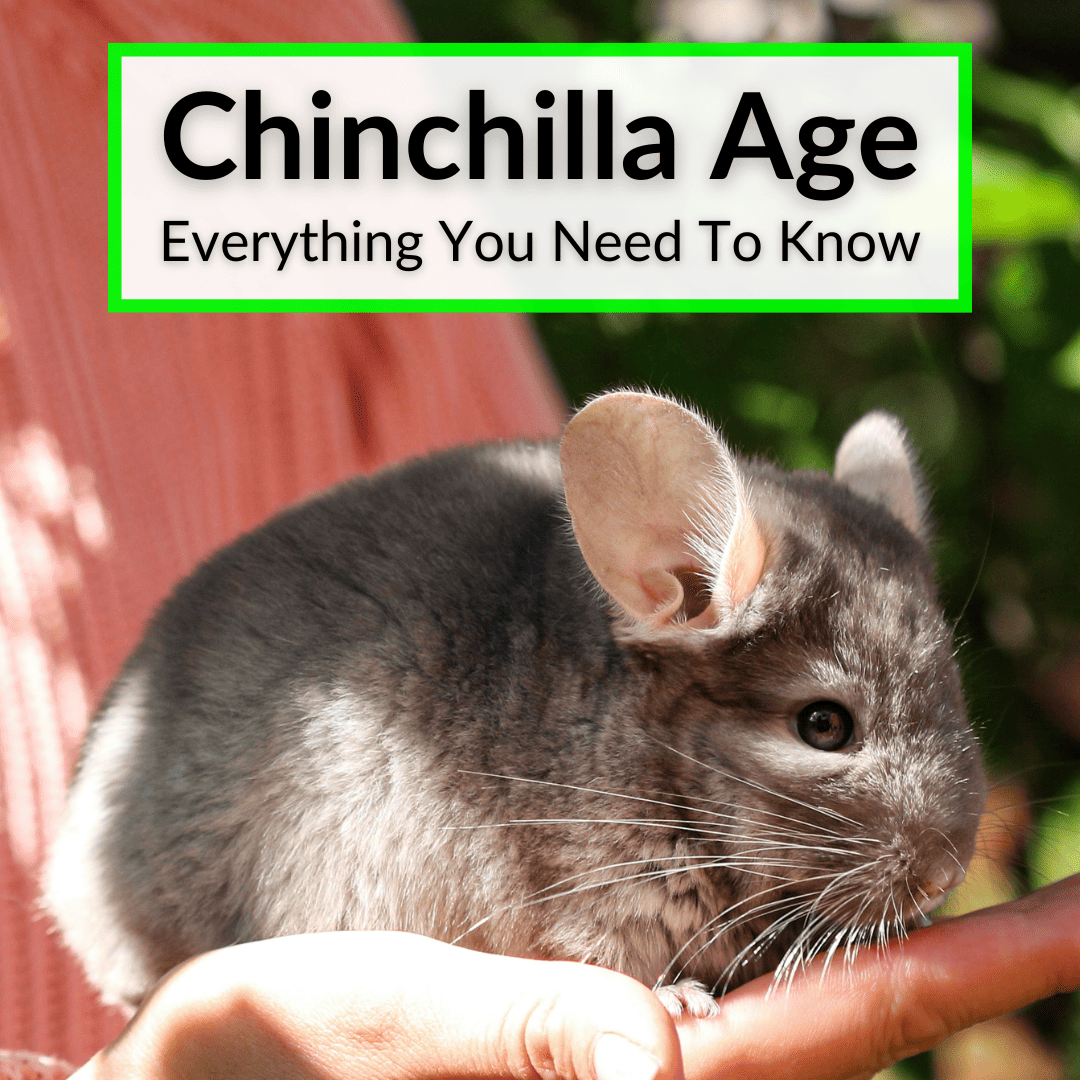
When I first started looking into chinchillas as a pet many, many years ago, I realized I did not know much about these rodents.
I learned a lot of interesting and surprising things.
But what I learned about chinchilla age surprised me the most.
Most rodents live a few years, at most.
I was shocked to learn chinchillas can live 20 years or more!
But that’s not the only interesting thing you’ll want to know about chinchilla age. Or the only important thing you need to know.
Keep reading lo learn everything you might want to know and all the things you really need to know about the age of a chinchilla.
Contents
Chinchilla Age
Knowing your chinchilla’s age can help you understand its life stages and provide it with optimal care. The life expectancy of these animals is between 10 and 20 years, although some have been known to live for more than 20 years.
Knowing your chinchilla’s age can help you understand its sexual maturity and reproductive status. This knowledge can come in handy if you plan to breed your chinchilla. It can also help you keep abreast of potential health issues in the species.
How To Tell How Old A Chinchilla Is
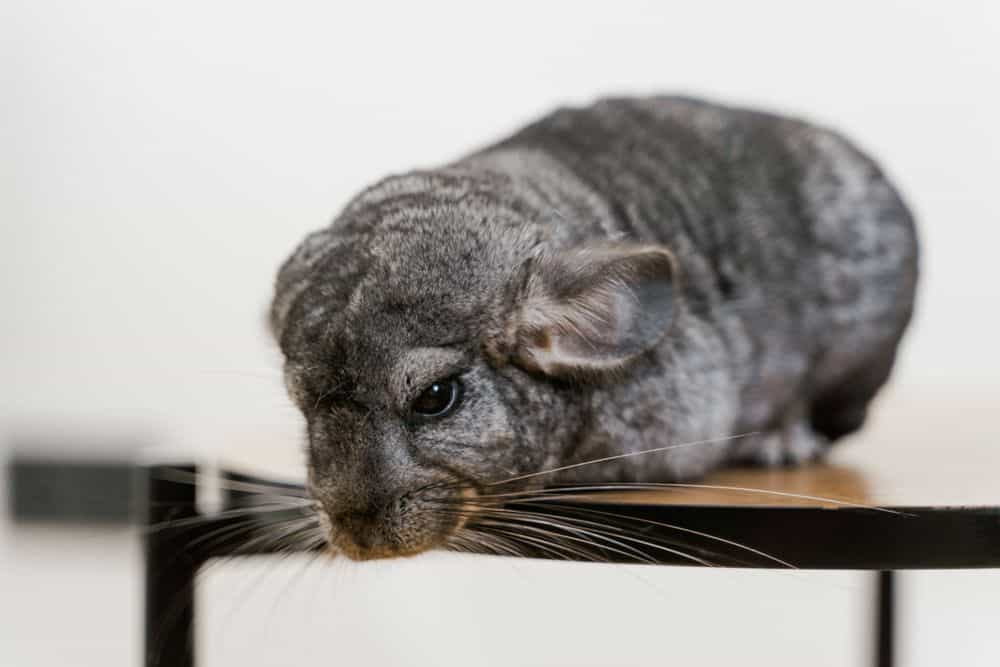
It can be difficult to tell the exact age of a chinchilla. If you have adopted your pet from a rescue shelter without knowing its history and haven’t purchased it from a breeder, then it can be nearly impossible to tell its exact age.
That said, here are some factors that you can use to guess your chinchilla’s age.
Size And Weight
When a chinchilla is born, it weighs a few ounces. On the other hand, a fully-grown adult chinchilla usually weighs about 400 to 600 grams, or about 15 to 20 ounces.
A chinchilla is considered an adult at one year old. It should measure between 8 and 11 inches long, with a tail that is 5 to 6 and ½ inches long.
As I recommended in this article, it is important to weigh and measure your chinchilla every month to ensure it is at the optimum weight. Knowing your chinchilla’s weight can help you make an educated guess about its approximate age.
Fur Texture And Hair Length
Some chinchilla kits are born without fur, while others possess a thick coat of soft, fuzzy fur that helps keep them warm. Younger chins tend to have lighter-colored, softer fur, and their hair length is also shorter.
Adult chinchillas, on the other hand, tend to have thicker, darker, and slightly coarser fur with nearly 60 hairs in each follicle. This makes their dense coat virtually impenetrable. The adults’ hair is also longer.
You can assess your chinchilla’s fur texture, color, and hair length to make a guess about its age.
Dental Health
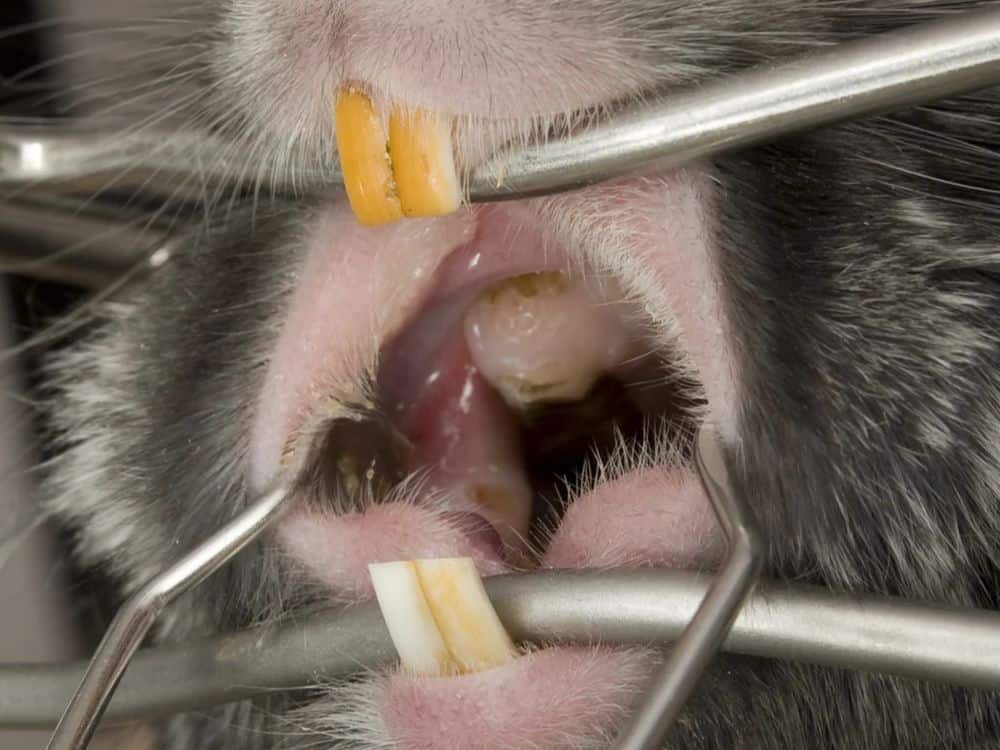
Another factor to consider when estimating a chinchilla’s age is its teeth. Younger chins have whiter, sharper teeth, while older ones might have worn-out, yellow teeth.
Energy Levels And Overall Health
Younger chinchillas are healthier and more active. They have a lot of energy which they expend by climbing, exploring, digging, etc.
Older or senior chinchillas may sleep more and have less energy. They may also have chronic health issues like diarrhea, skin problems, dental issues, poop problems, etc.
Chinchilla Life Stages And Age
Here are the different life stages of chinchillas based on their ages.
Newborn
The newborn or infancy stage in the chinchilla life cycle lasts from birth to 4 to 6 weeks of age. Newborn chinchillas (known as kits) have soft, fuzzy fur. They may weigh around 2.5 to 3 ounces. Their eyes are open, and they nurse up to 6 weeks of age.
Juveniles
Chinchillas are considered juveniles from 6 weeks to 8 months. By 12 weeks, they are known as weanlings, because they begin to nurse less often. At this point, it is important to separate the weanlings from their parents and keep the same-sex ones in one cage.
Keep an eye on the juvies to ensure they are eating and growing properly. Juvies are also extremely energetic, almost to the point of being hyper. You can provide them with toys and adequate playtime to help expend that energy.
Young Adults
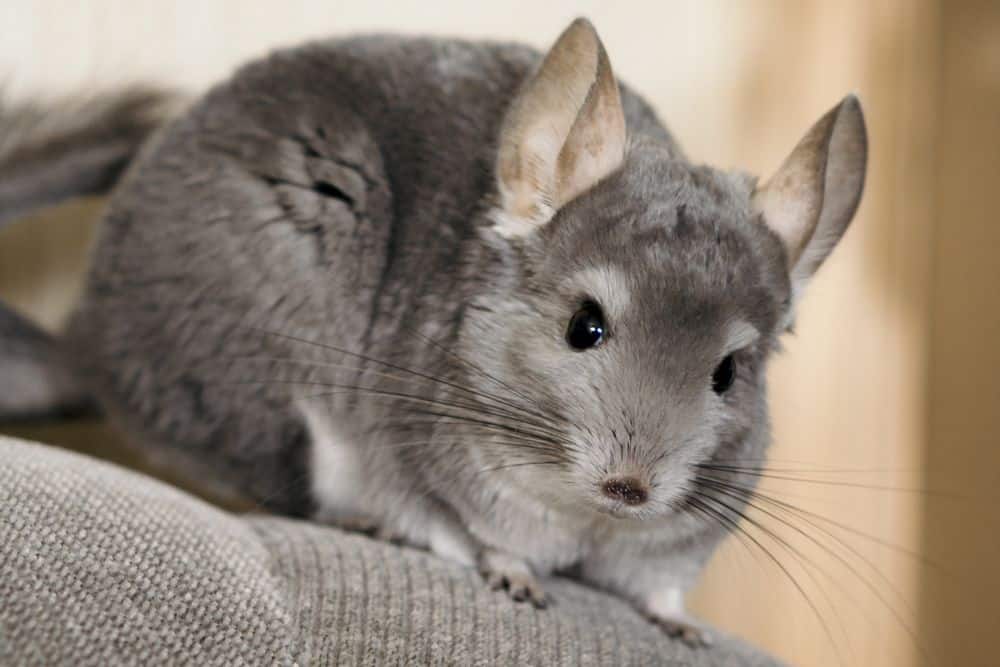
This stage lasts from 8 months to about 1 year. At this stage, chinchillas mellow slightly and calm down. They are ready to be bred at 9 to 12 months.
Adults
Adult chinchillas are over 1 year old, and they usually stop growing by this point. (However, some chinchillas continue to grow and gain weight for almost 6 months more.)
Adult chinchillas are fairly active, and they are ready for breeding. They also tend to develop health issues or illnesses at this stage. It is important to monitor them carefully and provide a healthy diet and regular exercise. Routine health checks can help prolong your pet’s lifespan considerably.
Senior
This stage usually occurs when the chinchilla is 8 to 9 years old and continues until the end of its lifespan. Senior chinchillas tend to experience age-related health issues and show a marked decrease in activity levels.
Chinchilla Age In Human Years
Comparing a chinchilla in terms of human age is not really as straightforward as one might think. After all, domestic vs wild chinchillas live for much different lengths of times, on average. Wild ones generally live 8 to 10 years, while captive ones could live 15 to 20 years with proper care.
In general, you could consider a year-old chinchilla to be the equivalent of an 18-year-old adult. Similarly, a 3-year-old chin can be considered the equivalent of a 31-year-old human, a 7-year-old chin is equivalent to a 59-year-old human, and a 10-year-old chin is almost 70 years old in human years!
Please note that this is not definite, and every chinchilla ages differently based on the care, diet, and environment it receives. And the same is true for us humans, as well.
What Is The Longest Living Chinchilla?
According to the Guinness Book of World Records, the oldest living chinchilla was Radar. Radar was born in Germany on February 1, 1985, and he died in Acton, California, on September 18, 2014. He was 29 years and 229 days old! And he apparently did some traveling during his time on earth!
How Fast Do Chinchillas Age?
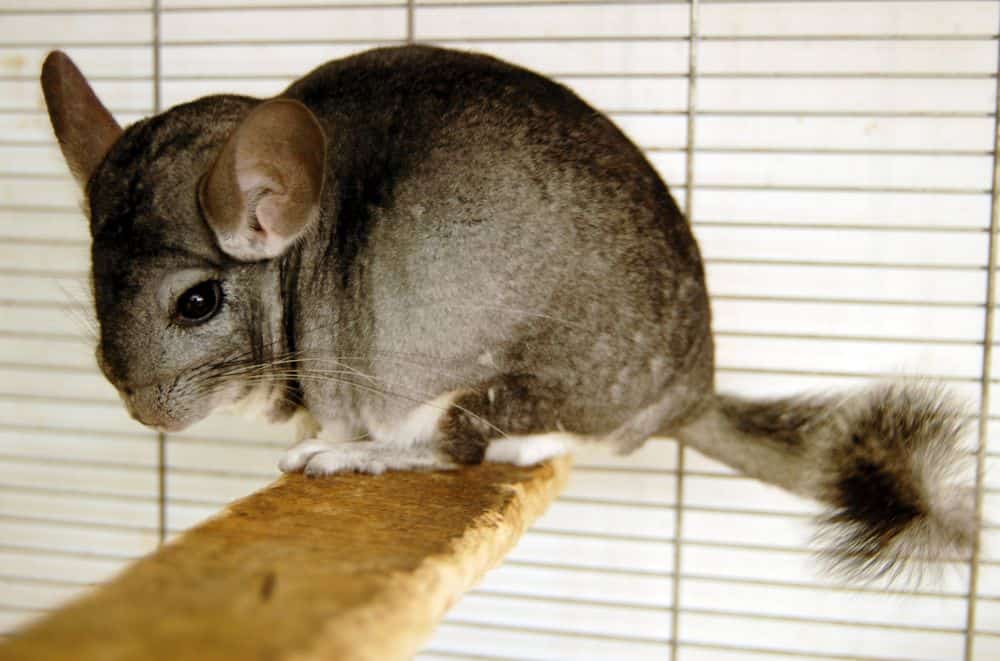
Chinchillas age faster than humans, and they undergo rapid growth and development. They become sexually mature by the age of 8 to 9 months and are ready to breed!
Most chinchillas show age-related health issues by the time they are 4 to 5 years old. The total lifespan of chinchillas is 10 years in the wild and 15 to 20 years in captivity.
When it comes to the rate of chinchilla aging, please note that nothing is fixed. It depends on various factors, including the care and environment you provide, as well as the animal’s genetics.
A healthy diet, plenty of mental and physical stimulation, and regular vet checkups can keep your chinchilla thriving for years to come. Of course, all animals die some day, unfortunately. And when that does happen, make sure you know what to do when your chinchilla dies.
What Is The Best Age To Buy A Chinchilla?
There is no definite answer to this question. There are several factors to consider.
- If you buy a young chinchilla of 4-8 weeks, you’d need to provide it with early enrichment, socialization, and training. The upside is that doing so can help you form a stronger bond with your young pet.
- If you adopt an older chinchilla of over 1 year, chances are that it may already be used to being handled. It might already be interacting with humans and that, too, can also help you bond with it a lot faster.
- With older chinchillas, there could be certain health as well as behavioral issues. Their temperaments will be fixed and changing them could prove difficult.
- Older chinchillas could also have health issues or genetic conditions.
Regardless of the age of your chinchilla when you first buy it, make sure to provide it with love and care! This is important for your pet’s physical and mental well being and can go a long way in prolonging its lifespan.
Chinchilla Age: Final Thoughts
Chinchillas live far longer than I would have ever guessed. And I’m sure the average chinchilla lifespan surprises just about anyone. But because the length of time a chinchilla lives varies so much (and the same is true for us), it is difficult to give a chinchilla’s age in human years.
In fact, it is difficult to determine a chinchilla’s age at all, unless you know when it was born. With most chinchillas you simply can’t guess the age with any real degree of accuracy. Our tips above on how to tell a chinchilla’s age will help you estimate it, but it will probably get you within a few years at best.
Leave a Reply